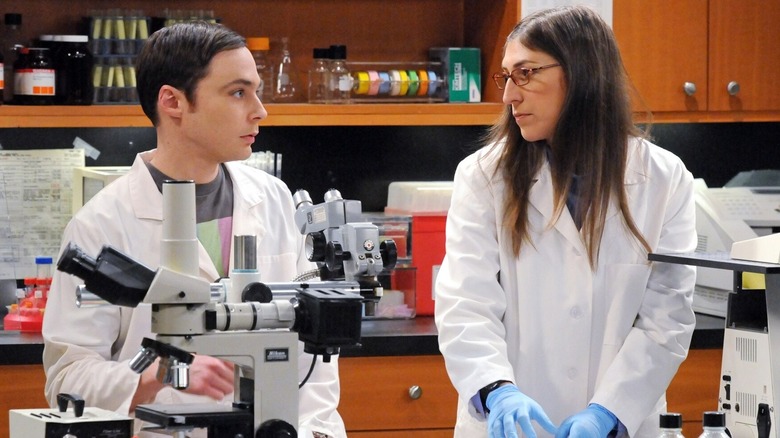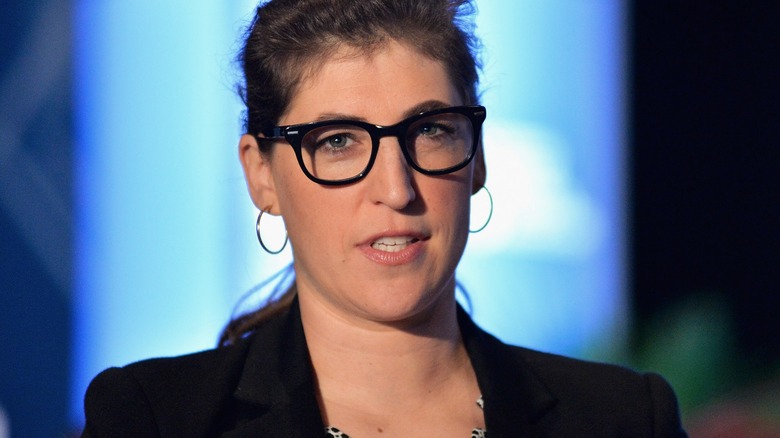The Big Bang Theory's Scientific Accuracy May Surprise Fans (And Anger Critics)
The success of "The Big Bang Theory" proves that plenty of people enjoy the nerd-centric sitcom, but despite being a ratings smash for CBS, it's arguably one of the most maligned comedy series of the 21st century, with many critics noting that it portrays geeks, nerds, and scientists in a negative light. Those naysayers might have to eat their words, however, as the show is more positive toward science than people realize.
According to Physics Today, "The Big Bang Theory" is a scientifically accurate sitcom. During its 12-season run, David Saltzberg, a professor of physics and astronomy at UCLA, worked as a consultant on the show, ensuring each script was factual when it came to his area of expertise. The esteemed professor also made suggestions regarding research topics to cover in storylines, as well as what laboratory equipment to decorate the sets with. This attention to detail adds to the sitcom's scientific authenticity, thus dispelling the belief that it treats the profession as a joke.
What's more, Saltzberg isn't the only genius mind who's synonymous with "The Big Bang Theory." One of the show's key cast members is also a scientist, and she knows people like Sheldon Cooper (Jim Parsons), Leonard Hofstadter (Johnny Galecki), Howard Wolowitz (Simon Helberg), and Rajesh Koothrappali (Kunal Nayyar) in real life.
Mayim Bialik has a neuroscience background
On "The Big Bang Theory," Mayim Bialik plays Amy Farrah Fowler, a neuroscientist and the eccentric love interest of Sheldon Cooper. While the character is totally different from the performer who plays her, they're similar in the sense that they're both scientific geniuses. Bialik got her doctorate in neuroscience from UCLA in 2007, which set her up for joining the CBS sitcom in Season 3.
According to Bialik, she knew she'd be right at home on "The Big Bang Theory" after discovering the series. "So I googled Sheldon Cooper, and I saw ... this character Jim Parsons created, and I watched maybe 10 or 15 seconds, and I was like, 'Oh, I know people like this. I can do this. I've been in grad school. We're all like this,' Bialik told a crowd at the University of Tennessee in 2019 (per Knox News).
Naturally, her expertise also came in handy on the set. In an interview with Wired, David Saltzberg revealed that Bialik backed him up when it came to fact-checking all mentions of biology in "The Big Bang Theory." At the end of the day, this series had enough scientific minds on its team to make sure it was true to life, and that's a reality the show's critics just have to accept.

